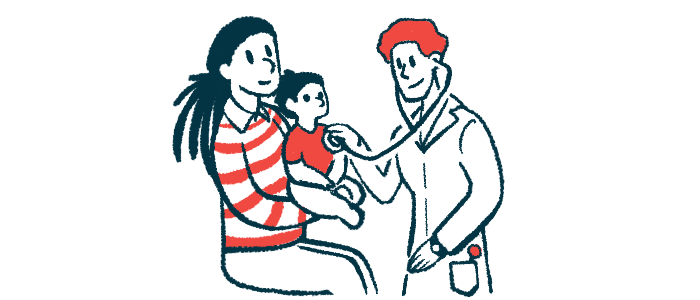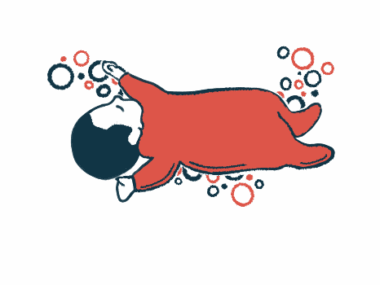Parental cigarette smoking raises PAH risk for their babies: Study
Almost half of smoke-exposed children developed PAH in year after birth
Written by |

Children of cigarette-smoking parents are at greater risk of developing pulmonary arterial hypertension (PHA) within a year after birth, according to a new study by researchers in Iran.
Specifically, almost half of babies exposed to parental cigarette smoke were diagnosed with PAH, while none of the children with nonsmoking parents developed the disease.
Moreover, the more cigarettes parents smoked, the more likely it was that their children would have high blood pressure in their pulmonary arteries — the blood vessels that transport blood from the heart to the lungs — the study found.
“This research revealed a significant association between parental smoking and PAH in infants. Also, the infant [blood pressure in the pulmonary artery] was significantly linked to the number of cigarettes that the parents smoked per day,” the researchers wrote.
The study, “Parental smoking and pulmonary arterial hypertension in infants: A cohort study,” was published in Progress in Pediatric Cardiology.
Cigarette smoking by parents linked to higher sPAP in children
PAH is a rare type of pulmonary hypertension, characterized by the narrowing of the pulmonary arteries. This restricts blood flow across the lungs, resulting in high blood pressure and making the heart work harder to pump blood.
Besides genetics, infections, and certain medications, environmental factors are believed to also contribute to developing PAH.
“Therefore, it is possible to suppose that exposure to tobacco smoke may interact with other factors, such as genetics, to contribute to the development of PAH,” the researchers wrote.
Previous studies support this hypothesis, as tobacco smoke has been suggested to promote the growth of endothelial cells — which line the inner side of blood vessels — and may increase the levels of vasoconstrictor molecules, which tighten blood vessels.
Now, a team from the Shahid Sadoughi University of Medical Sciences, and Afshar Hospital, both in Iran, investigated the effects of passive smoking on systolic pulmonary arterial pressure (sPAP), or blood pressure against artery walls when the heart beats, in children whose parents smoked.
The team noted that “children are especially susceptible to passive smoking’s negative effect.”
PAH was not diagnosed in any infants whose parents did not smoke. In contrast, 45.71 % of infants whose parents smoked got … PAH.
A total of 140 newborns, between 1 and 28 days of age, were classified into two groups: those whose parents smoked and those whose parents were nonsmokers. All of the children had a birth weight between 2.5 and 4 kg, or 5.5 to 8.8 pounds. Their SPAP was determined using echocardiography — an exam that uses sound waves to create a moving image of the heart.
At testing, the newborns had a mean age of 19.2 days and a mean weight of 3.23 kg (7.1 pounds). In all, 47.9% were female. At birth, all of the babies had normal sPAP at a mean value of 16.64 mmHg.
For further analysis, the children in both groups were matched by birth weight and sPAP values.
After one year, children with cigarette-smoking parents had a significantly higher sPAP than those whose parents did not smoke (34.23 vs. 11.11 mmHg). Also, nearly half of the children whose parents smoked developed PAH after one year, whereas none of the children with nonsmoking parents developed the condition.
“PAH was not diagnosed in any infants whose parents did not smoke. In contrast, 45.71 % of infants whose parents smoked got … PAH,” the researchers wrote.
The study also found a significant association between the number of cigarettes parents smoked per day and their children’s sPAP level. In contrast, the risk of having PAH was not different in males or females.
According to the researchers, “the [disease-causing mechanism] between parental smoking and the development of PAH in children is unknown.”




